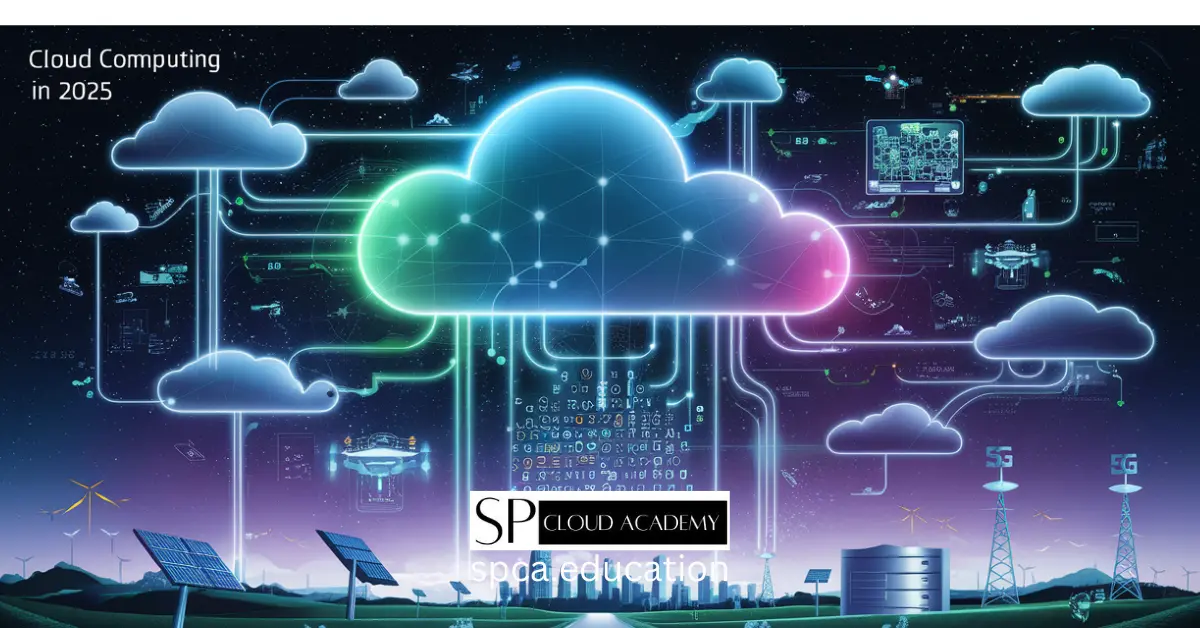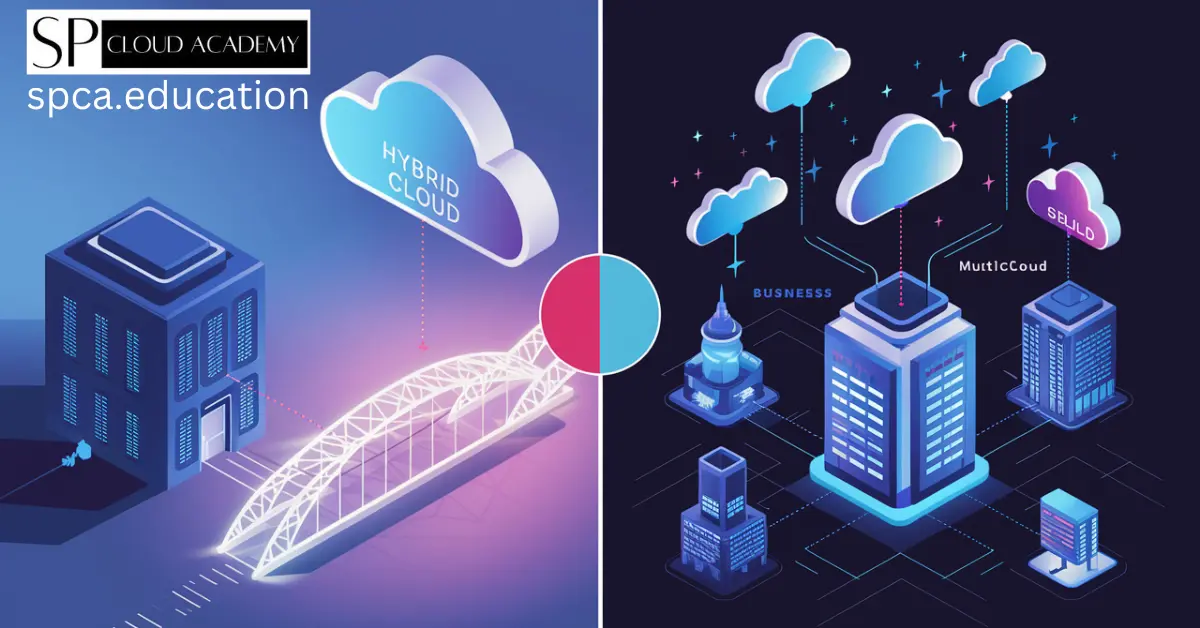Cloud computing is no longer a futuristic buzzword; it’s the bedrock of modern technology. From the apps on your phone to the complex systems running global enterprises, the cloud is everywhere. For professionals looking to start or advance their careers in tech, understanding the cloud isn’t just an advantage—it’s a necessity.
But where do you begin? The world of cloud computing is vast, with its own terminology, major players like AWS, Azure, and GCP, and complex architectural principles. It can feel overwhelming to navigate.
That’s where a good book comes in. A well-written guide can demystify complex topics, provide a structured learning path, and offer insights from industry experts. We’ve curated a list of ten essential books on cloud computing that cater to everyone from the absolute beginner to the seasoned architect. Let’s dive in and find the perfect book to launch your cloud journey.
1. Cloud Computing For Dummies by Judith S. Hurwitz, Robin Bloor, et al.
Who It’s For: Absolute Beginners, Students, and Business Professionals.
Why It’s a Must-Read: Don’t let the “Dummies” title fool you; this book is a fantastic starting point for anyone new to the cloud. It expertly breaks down the foundational concepts without requiring any prior technical knowledge. It answers the most fundamental questions: What is the cloud? Why does it matter? What are IaaS, PaaS, and SaaS?
This book excels at explaining the business value of cloud adoption, making it perfect for managers or entrepreneurs who need to understand the ‘why’ before the ‘how’. It covers:
- The core concepts and benefits of cloud computing.
- An overview of cloud security and governance.
- Practical advice on planning a cloud migration strategy.
If you want a gentle, jargon-free introduction to the cloud landscape, this is your first stop. It builds the solid foundation you’ll need before tackling more technical topics.
2. Ahead in the Cloud: Best Practices for Navigating the Future of Enterprise IT by Stephen Orban
Who It’s For: IT Leaders, Project Managers, and Strategists.
Why It’s a Must-Read: Written by the Head of Enterprise Strategy at AWS, this book is less of a technical manual and more of a strategic playbook. Stephen Orban provides a high-level perspective on how large organizations can successfully transition to the cloud. He shares invaluable lessons learned from helping massive companies embrace a cloud-first culture.
This book is essential for anyone involved in the decision-making process of cloud adoption. It’s not about configuring a server; it’s about transforming an organization. You’ll learn about:
- Creating a compelling business case for the cloud.
- Building a “Cloud Center of Excellence” (CCoE).
- Overcoming common cultural and organizational hurdles.
Ahead in the Cloud provides the executive-level wisdom needed to steer an enterprise’s cloud journey, making it a critical read for current and aspiring tech leaders.
3. AWS Certified Solutions Architect – Associate (SAA-C03) Official Study Guide
Who It’s For: Aspiring Cloud Professionals and anyone preparing for the AWS CSAA certification.
Why It’s a Must-Read: Amazon Web Services (AWS) is the dominant player in the cloud market, and the Solutions Architect – Associate certification is one of the most sought-after credentials in the industry. This official study guide is the authoritative resource for preparing for the exam.
Even if you aren’t immediately taking the test, this book provides a structured, hands-on approach to learning core AWS services. It forces you to think like an architect, considering scalability, cost-effectiveness, and resilience. It covers everything from EC2 (virtual servers) and S3 (storage) to VPC (networking) and IAM (security). The real-world scenarios and review questions make it an incredibly practical learning tool.
4. Exam Ref AZ-104 Microsoft Azure Administrator by Harshul Patel
Who It’s For: Aspiring Azure Administrators and IT pros working in Microsoft-centric environments.
Why It’s a Must-Read: Microsoft Azure is the second-largest cloud provider and a favorite among enterprises already invested in the Microsoft ecosystem. The AZ-104 certification is the cornerstone for anyone managing Azure environments. This guide is your roadmap to mastering Azure administration.
The book is meticulously organized around the exam objectives, covering key skills like:
- Managing Azure identities and governance.
- Implementing and managing storage.
- Deploying and managing Azure compute resources (VMs, Containers).
- Configuring and managing virtual networking.
Like the AWS guide, its value extends beyond exam prep. It’s a practical desk reference for day-to-day Azure tasks, making it indispensable for anyone whose career involves the Microsoft cloud.
5. Official Google Cloud Certified Professional Cloud Architect Study Guide by Dan Sullivan
Who It’s For: Cloud Architects, Engineers, and those targeting the GCP Professional Cloud Architect certification.
Why It’s a Must-Read: Google Cloud Platform (GCP) is known for its strengths in data analytics, machine learning, and container orchestration with Kubernetes. This official guide prepares you for its top-tier architecture certification and provides deep insights into designing solutions on GCP.
This book challenges you to think about building secure, scalable, and reliable systems on Google’s infrastructure. It dives into GCP’s unique offerings, like BigQuery, Google Kubernetes Engine (GKE), and its global networking capabilities. By working through the case studies and practical exercises, you gain a robust understanding of not just what GCP services do, but how to architect them effectively.
6. The Phoenix Project: A Novel About IT, DevOps, and Helping Your Business Win by Gene Kim, Kevin Behr, and George Spafford
Who It’s For: Everyone in tech—Developers, Operations Staff, and Managers.
Why It’s a Must-Read: This isn’t a traditional textbook, but it might be the most important book on this list for understanding modern IT culture. The Phoenix Project is a novel that tells the story of an IT manager tasked with saving a failing, mission-critical project.
Through its engaging narrative, the book brilliantly illustrates the core principles of DevOps—a culture and practice essential for success in the cloud. It highlights the friction between development and operations teams and demonstrates how to overcome it through collaboration, automation, and a focus on business value. You’ll learn about the “Three Ways” of DevOps and why they are fundamental to building and deploying software efficiently in a cloud environment. It’s a page-turner that will change how you view your work.
7. Cloud Strategy: A Decision-Based Approach to Quick-Wins and Long-Term Success by Gregor Hohpe
Who It’s For: Senior Engineers, Cloud Architects, and CTOs.
Why It’s a Must-Read: Gregor Hohpe is a legendary enterprise architect, and this book is a masterclass in high-level thinking about the cloud. It moves beyond the “what” and “how” to focus on the “why” and “when.” Hohpe argues that a cloud strategy isn’t a single document but a series of informed decisions.
This book provides mental models and frameworks for making critical architectural choices. Should you refactor or re-platform? How do you manage hybrid cloud complexity? How do you balance speed with stability? The book is filled with insightful diagrams and clear, concise prose that distills complex architectural trade-offs into understandable decisions. It’s a book you’ll return to again and again as you face new challenges in your cloud career.
8. Site Reliability Engineering: How Google Runs Production Systems edited by Betsy Beyer, Chris Jones, Jennifer Petoff, and Niall Richard Murphy
Who It’s For: Operations Engineers, DevOps Practitioners, and anyone responsible for keeping systems online.
Why It’s a Must-Read: This is the “bible” of Site Reliability Engineering (SRE), the discipline created at Google that has revolutionized how companies approach operations. SRE applies software engineering principles to infrastructure and operations problems, with the goal of creating ultra-scalable and highly reliable systems.
While a dense read, its chapters are written by the Google engineers who built and maintain some of the largest systems in the world. You’ll learn about core SRE concepts like Service Level Objectives (SLOs), error budgets, blameless postmortems, and eliminating toil through automation. These principles are directly applicable to managing any large-scale cloud environment, making this book a foundational text for modern operations.
9. Cloud Native Patterns: Designing change-tolerant software by Cornelia Davis
Who It’s For: Software Developers and Architects building applications for the cloud.
Why It’s a Must-Read: “Cloud-native” means designing applications specifically to take advantage of a cloud environment’s elasticity, resilience, and flexibility. This book provides the design patterns you need to do just that. Cornelia Davis does a brilliant job of explaining why certain patterns exist and how they solve specific problems in a distributed system.
The book is structured around a set of patterns that address everything from event-driven architecture and API gateways to managing state and ensuring observability. It’s highly practical, with clear explanations and diagrams that make abstract concepts concrete. If you’re a developer moving from monolithic applications to microservices, this book is your essential guide.
10. Practical Cloud Security: A Guide for Secure Design and Deployment by Chris Dotson
Who It’s For: Security Professionals, DevOps Engineers (DevSecOps), and Cloud Architects.
Why It’s a Must-Read: Security in the cloud is a shared responsibility, and it must be built in from the start, not bolted on as an afterthought. This book offers a pragmatic, hands-on approach to securing cloud environments. It avoids being overly theoretical and instead focuses on actionable advice and best practices.
Practical Cloud Security covers a wide range of topics, including identity and access management (IAM), network security, data protection, and incident response in the cloud. It provides platform-agnostic principles while also giving specific examples for AWS, Azure, and GCP. In an era where data breaches are common, understanding and implementing the practices in this book is non-negotiable for anyone building on the cloud.
Your Learning Journey Starts Now
The cloud is a vast and ever-evolving domain, but it’s also filled with incredible opportunities. Whether you’re building your first virtual machine, designing a global application, or leading your company’s digital transformation, continuous learning is the key to success.
This list is your starting point—a curated library to guide you on your journey. Pick the book that best matches your current role and future aspirations, and start building the knowledge that will power your career.
What are your favorite cloud computing books? Share your recommendations in the comments below.
See Also
-

Battle of the Giants: Comparing AWS, Google Cloud, and Microsoft Azure Head-to-Head
-

Cloud 2025: Game-Changing Innovations Driving the Future of Technology
-

The Ultimate Cloud Hosting Handbook: Every Feature, Benefit, and Pitfall Explained
-

From Hardware to Apps: Mastering Every Type of Virtualization in Cloud Computing
-

Unlock the Sky: 10 Must-Read Books on Cloud Computing for Every Skill Level
-

Your Cloud Migration Just Got Easier: A Step-by-Step Decision Guide
-

Hybrid Cloud vs. Multicloud: What’s the Real Difference and Why It Matters
-

Unlocking the Power of the Public Cloud: A Strategic Guide for Modern IT Leaders
-

The Ultimate Cloud Storage Management Checklist: Don’t Miss These 10 Key Steps!
-

Is Your Cloud Data Safe? The Must-Have Storage Policy Every Business Needs
-

No More Limits: Cloud Computing Labs Are the Key to Hands-On Practice Without Boundaries
-

From Sketch to Screen: The Cloud-Powered Future of 3D Modeling and Rendering